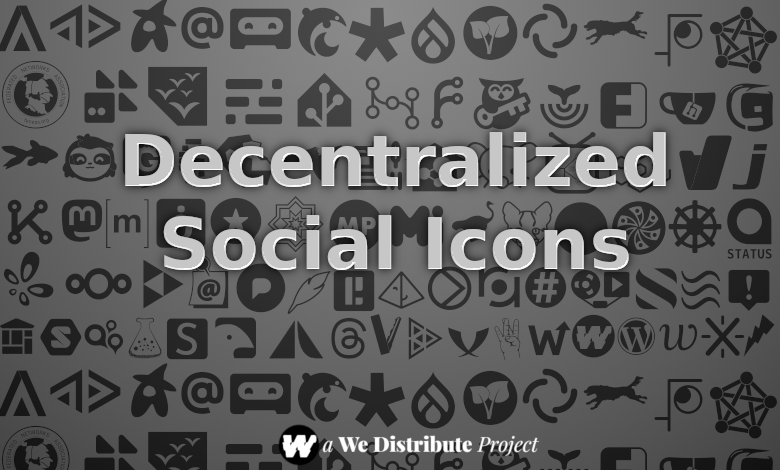Sean Tilley
Former Diaspora core team member, I work on various fediverse projects, and also spend my time making music and indie adventure games!
- 85 Posts
- 156 Comments

 4·1 month ago
4·1 month agoHey, no problem. Sorry for the misunderstanding.

 15·1 month ago
15·1 month agoBasically, this. In layman’s terms: finding the good stuff on a decentralized network is hard, because not everybody or everything is all in one place. Some tools can help make the experience suck less, but it’s a really hard problem that has lingered on for years.
This proposal is basically a team-up to develop the necessary plumbing so that services, such as search providers or distribution networks, can be easily used by anybody on the network, regardless of whether they’re on Mastodon, Lemmy, or something else.
There’s a few interesting applications here that go beyond just finding people, showing trending stuff, or providing an index of stuff. Some of this could be used for moderation tooling for admins, or custom feeds for users, or a directory of things to review. If the existing projects trying to solve all these problems came together, it might make a lot of things way easier.

 5·1 month ago
5·1 month agoIt’s an issue with content negotiation for the WordPress-ActivityPub plugin. Upstream is working on it some, we’re using a recommended caching plugin to cut down on how often it happens.

 2·2 months ago
2·2 months agoFucking amazing book, I laughed so hard from start to finish.

 2·2 months ago
2·2 months agoYeah, I’ll try to look into this for clarity. It really depends on what they mean here - I think they’re referring to curated server following between admins, which is what PeerTube does.
When I tested out the messaging system, I was able to federate back and forth with Mastodon. Maybe it works fine at a user level, it’s just the search entries that don’t get federated automatically?

 6·3 months ago
6·3 months agoYep, I’m aware of their effort, and have reached out about collaboration. 😁
The icon font I’ve been building might technically predate it. I’ve been building it since December at least, and it’s something our site depends on.

 33·3 months ago
33·3 months agoRegardless of how you feel about it, it’s still notable that people on the Fediverse managed to scrape $500k together. This is the first time something like that has ever happened on this network. In the world of big politics and presidential campaigns, it’s not much. However, within the scope of grassroots organizing, it’s substantial.
I agree that I would love to see that funding go towards mutual aid, infra and project funding, and supporting people who work on different parts of the network.

 3·3 months ago
3·3 months agoI think it’s a big opportunity that the Fediverse has largely slept on. A lot of people shrug it off, but Facebook, Instagram, Medium, and a number of other places offer an export archive of your data.
Some of it isn’t all that usable, but there’s something extremely appealing about being able to take old parts of your social graph with you, and merge it into a new identity. A fixation I’ve had for the past few years is consolidating all of my data into one place, under one identity, and I’m exploring the possibility of writing data converters.
Interestingly, Pixelfed allows you to import your Instagram archive, and it’s fantastic.

 5·3 months ago
5·3 months agoSo, to be clear: it’s not a concept like Nomadic Identity. Rather, it’s a demonstration of importing data archives from other social networks and platforms, and integrating that data into an existing Fediverse account.
In other words: it’s not a singular managed identity for all your apps, it’s a mechanism for marrying data from different systems to a Fediverse Actor. Paired with something like Nomadic Identity, it would be a game changer.

 5·5 months ago
5·5 months agoThe shocking part was less about Maven’s methods or lack of ethics, and more along the lines of “How the fuck did they do that?!”

 4·5 months ago
4·5 months agoOh wow, how did I miss this?!
Congratulations! I’ve been around for roughly the same amount of time, and it’s wild to see how much things have changed.
I still miss old Identi.ca, though.
Most of the backlash pertains to the board members appointed to the new nonprofit. One of the members is a lawyer that has defended crypto and AI companies, another is ex-Twitter angel investor Biz Stone.
Mastodon’s community usually has some kind of vague beef about one thing or another when it comes to Eugen and the decisions he makes for the project, whether it’s a new feature or a design change or that he didn’t do something that other projects wanted to do.
Nextcloud is a fork of Owncloud. IMO, as a product Nextcloud is superior in every way.
Yeah, if you read the article, Hometown and Glitch actually get mentioned. The criticism is not about making a fork to do your own thing… but, instead, about trying to compete with Mastodon directly.
Doing that kind of fork (which is what people are calling for) requires a tremendous amount of coordination, effort, and commitment that cannot be done casually.
This is a situation that I think will get better in time. There’s some really promising efforts involving Fediverse Enhancement Proposals, where multiple projects collaborate on shared ways of doing things. Some of these behaviors are getting studied and standardized by the larger SocialCG entity, as well.
There’s also a lot of promising development behind a Fediverse Testing Suite. If we can develop a platform-agnostic testing system for people to build against, it will potentially become the new development standard, rather than optimizing for Mastodon and nothing else.

 10·6 months ago
10·6 months agoWhile I think shareholders can be a driving factor, I see it way more often with VC-funded companies. The “2.5x year over year” growth mantra that places like YCombinator stipulate have disastrous effects on small tech companies. Often, these startups have an incentive to keep taking additional funding rounds, which appears to tighten the grip the VC has over them.
Try growing the next Microsoft or Google or Amazon out of that model. I’m not convinced that it’s possible. At least if you bootstrap your own company, you don’t have the same binding obligations…even if it takes way longer to get to a place that’s self-sustaining.

 8·6 months ago
8·6 months agoHonestly, this really resonated with me. Running an open source project on its own can be hard, running a popular one that gets used by tons of people and companies, while giving free labor, is extremely hard. Acting as free tech support to a large company, for nothing in return, is ass. Full stop.
I’ve seen some people make the statement that “maintainers owe you nothing”, and I’ve seen people state that “your supporters owe you nothing.”
While I believe there’s nothing wrong in a person willingly running a project on their own terms, just as there’s nothing wrong with refusing donations and doing the work out of some kind of passion… there’s only so many hours in the day, and developers need to feed themselves and pay rent.
I think a lot of people would love to be able to work on open source full-time. I’d devote all of my energy and focus to it, if I could. But, that’s a reality only for a privileged few, and many of them still have to make compromises. The CEO and founder of Mastodon, for example, makes a pittance compared to what a corporate junior developer makes.
Sentry also did this by embracing the Business Source License. Technically, you can still get an MIT-licensed version, but it has to be more than two years old.
As a former employee that worked there during the days that Sentry really promoted itself being Open Source, it was disappointing to see. VC Funding and a growth obsession basically poisoned the well.


















It’s a slow rollout. Dansup is doing his best to put a good foot forward, there’s a lot of moving parts, and it’s fairly more complicated than some of his prior work. I’m super stoked for it, and can’t wait to put together a detailed review.